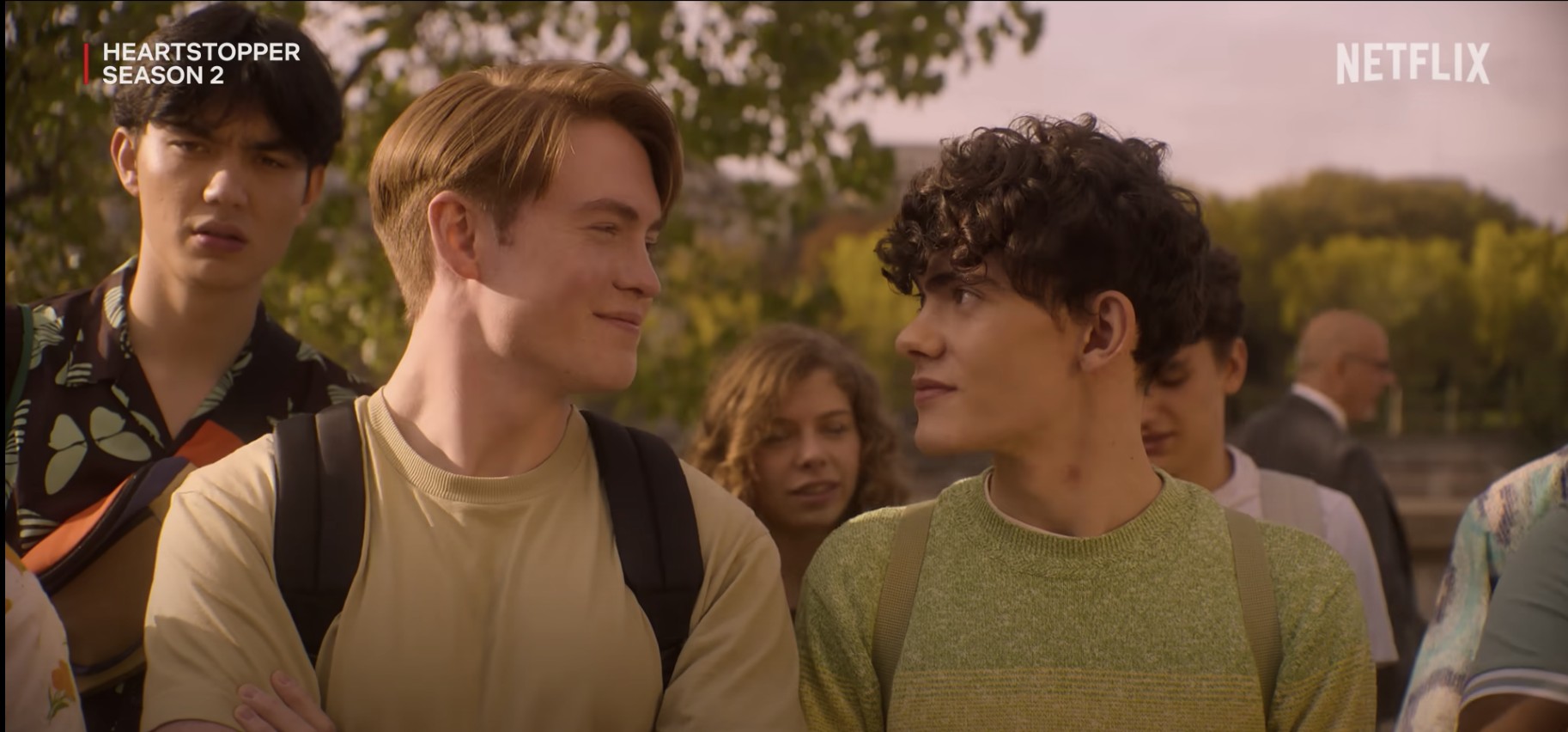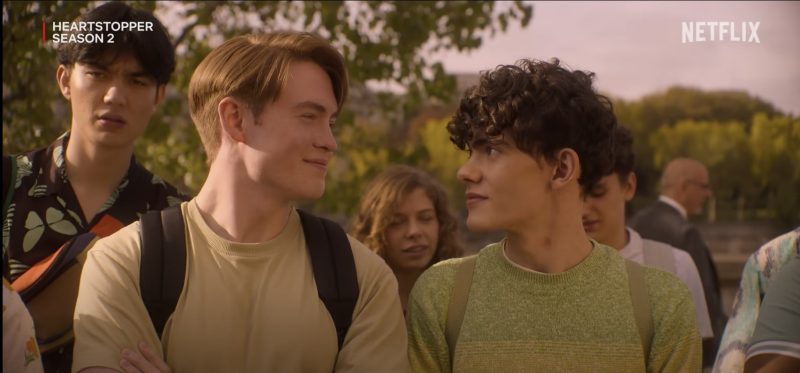Is Heartstopper Netflix’s best queer show to date?


After “binging” Heartstopper Season 1 in under three days, I had been waiting with bated breath for season 2 to drop on Netflix.
So, on Aug. 3, I was ready to break my record by watching the show in two days instead of three. I was successful.
As anyone who watched the first season will know, Heartstopper is a feel-good series through and through.
Familiar with watching (and reading) queer series that enjoy ripping your heart out, I had expected before watching the first season that Heartstopper would do the same.
I could not have been more wrong.
This trend continues with the show’s second season, each episode masterfully conducted and just the right level of heartwarming.
In the Heartstopper universe, every drama or issue is resolved in a way that feels safe – you never find yourself wondering if something won’t get worked out in the end.
As a queer person living in a world that doesn’t normally have that energy, I need that kind of energy when watching a program.
Throughout the eight-episode season, Nick and Charlie’s relationship progresses realistically – each character facing trials (such as Nick coming out to his father).
Nick and Charlie represent a same-sex relationship that is healthy at its core rather than turbulent, as is common in many other shows and films.
They know, through any struggle that they face, that they are stronger together.
Charlie and Nick, despite their age, manage their relationship in a way that is realistic, yet still highlights the shortcomings that come with teenage relationships.
Using Paris as a backdrop to the majority of the season’s episodes lends the show an even more romantic air – it is the city of love, after all.
Another key highlight of this season comes in the portrayal of the friendship/now relationship between Elle and Tao.
Fans will be happy to see these two finally “work it out” as they admit their feelings towards one another and step into a new phase of their relationship.
Further, Tara and Darcy also see more development – Darcy navigating her relationship with her mother while trying to discover her own identity.
The darker moments in the season, while difficult and emotional for the characters, are handled in a respectful manner.
While relationships are focused on throughout the show, friendships are demonstrated to be just as important.
Lastly, I was thrilled to see the progression of Isaac’s character – particularly the way he discovered his asexual identity. It is very rare to see asexual representation in modern media, so seeing it in Heartstopper only adds more credit to the show’s overwhelming impact. If you haven’t watched either season of Heartstopper yet, I highly encourage you to, even if you do not identify as a part of the LGBTQIA+ community. Watching the show will give you a new perspective on those you know who do identify as part of the community, and the struggles they likely face due to their identity.
Netflix has a winner on their hands, and I cannot wait for the third season.
It can’t come soon enough!


